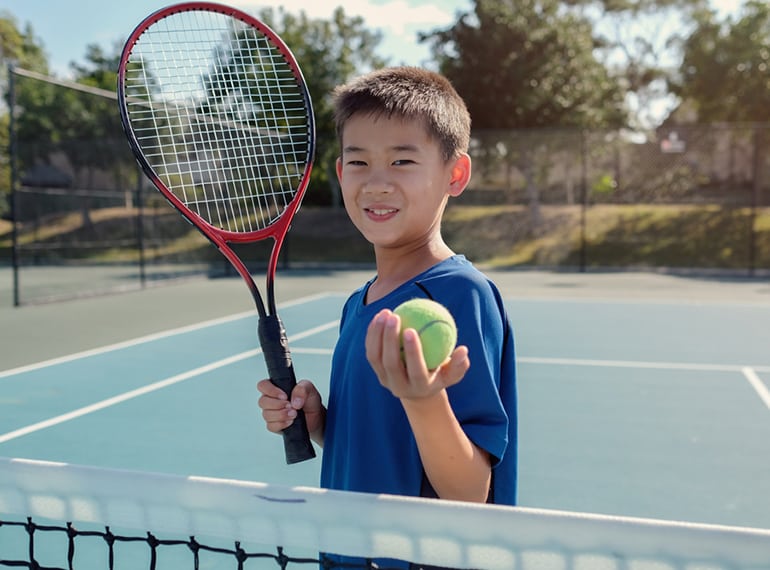According to MOE, co-curricular activities (CCA) “are an integral part of our students’ holistic education”. When children participate in CCA, they are given new, fun experiences that they may not ordinarily have otherwise. MOE wants to allow students to “discover their interests and talents while developing values and competencies that will prepare them for a rapidly changing world”. We will share with you what you should consider while choosing CCAs in Primary School.
CCA also helps to widen social circles. MOE’s intention is for CCA to “promote friendships among students from diverse backgrounds as they learn, play and grow together”.
Most schools offer four main kinds of CCAs: uniformed groups such as Girls’ and Boys’ Brigade, Scouts and Brownies; clubs and societies such as chess club, library, or even robotics; visual and performing arts groups such as choir, dance or drama; and finally sports CCA which include options such as basketball, table tennis and volleyball.
With all that in mind, what are some of the factors you might want to consider as you gently guide your child to choose a CCA in primary school?
Select a CCA in primary school that aligns with your child’s interests
Obviously, the easiest way to manage this is to encourage your child to go for a CCA that he/she likes. After all, your child will spend a good bit of his/her time outside of studies on CCA, and we want it to be enjoyable for him/her.
For example, children who enjoy the outdoors, who are kinaesthetic learners, and who show an inclination towards physical activity may most enjoy a sports CCA or a performing arts CCA, such as dance and drama. These CCA provide excellent opportunities for children to burn off excess energy (especially after sitting in a classroom all morning) and hone their motor skills.
However, these CCA normally require a lot of commitment as they take up more time than clubs and societies, and usually also involve the pressure of competitions, which can, of course, be a positive thing as well.
Read also: Does Your Child Need Enrichment Classes? Top things for parents to consider.
Be fully aware of the demands and commitment required by each CCA
As mentioned, some CCA are naturally more demanding than others. Ensure that your child (who may be so excited by a CCA that he/she does not fully understand what he/she is signing up for) find out what he/she will be required to commit to.
Some questions you can consider include: How many rehearsals, meetings or practice sessions are there in a week? Is there a competition season that you need to plan study time around? Does your child have external programmes (swimming, piano, drama) that complement his/her CCA?
Young children are often not able to gauge accurately how they can manage their time. A child who is too ambitious may sign up for more than he/she can actually handle. Conversely, a child may be too fearful of giving up personal time and may pick a less interesting CCA.
Tip:
You can help your child to plan his/her week and figure out how much time he/she has. Get your child to sit down and draw up a weekly schedule and daily planner. This would help your child to properly visualise how much free time he/she has and what CCA would fit into his/her desired schedule.
Consider the long-term big picture scenario
Some parents are already looking ahead to secondary school when they prod their children to pick a CCA that can help with Direct School Admission (DSA). The MOE website says that the DSA is intended to help students to “gain direct entry to secondary schools based on their talents and achievements that may not be demonstrated at the PSLE”.
If your child shows some really exceptional talent at a particular musical instrument, sport or uniformed group, it may be a good idea to encourage him/her to pick the related CCA. This can be helpful for students who feel they cannot rely on results to get them into their school of choice.
However, this can lead to a bit of a vicious cycle. Students who are investing all their time and effort into a CCA will naturally have less time for their studies.
We are still not able to decide on a primary school CCA!
Make sure you and your children do the research together. Ultimately, it is your children who will be putting in the hard graft, time and commitment to the CCA. Ensure that they have fully bought into the CCA they have chosen and that they have no regrets about their selection.
Many schools have trials or try-outs where students can get a glimpse of what the CCA is really like. Teachers and seniors would also be on hand to answer any queries or concerns your child might have.
Children who have experience with external programmes often have a better understanding of what a CCA is like. Consider signing your children up for fun enrichment classes so that they can make a clearer decision about what they enjoy and what they would like to pursue.
MindChamps’ Champion Mindset Theatre Programme, for example, is a world-class performing arts programme which hones children’s social skills and physical coordination, while developing soft skills such as creativity, emotional control and empathy. It is a great way for younger children to experience what it is like in the performing arts and make an informed decision about their primary school CCA.
Read also: 5 Reasons Why Drama Classes for Kids are Beneficial
Contact us to register your interest today!
Written by Danielle Hee

